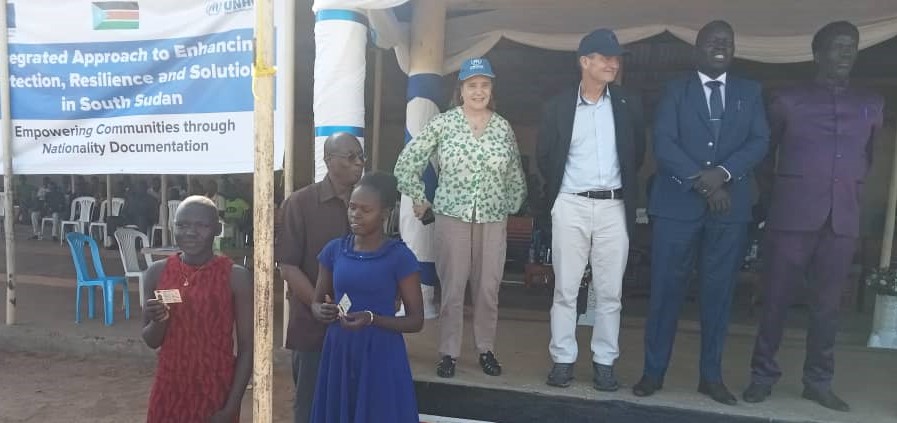More than 17,400 South Sudanese have been issued with national identity (ID) cards thanks to the joint EU and UNHCR partnership since the start of the year, officials said.
The two organizations said in a press release sent to Radio Tamazuj on Thursday that the exercise had targeted the South Sudanese who had returned from being refugees in other countries, as well as persons at risk of statelessness. It focused on the areas of high returns of refugees from neighboring countries, including in Central Equatoria the counties of Morobo, Lainya, Yei, and Kajo-Keji.
The UN Assistant High Commissioner for Refugees, Raouf Mazou, and the EU Ambassador, Timo Olkkonen, were in Yei on Tuesday to take part in a ceremony at which hundreds received the IDs as part of a joint project in support of the Directorate of Civil Registry, Nationality, Passport, and Immigration (DCRNPI).
The cards provide the citizens with a legal identity that is an essential first stop to access rights and services. They also open avenues for employment, financial inclusion and access to education. This initiative also supports their integration, socio-economic advancement and stability.
Olkkonen welcomed the milestone, highlighting that a nationality document is not just a bureaucratic requirement, but a fundamental right enshrined in the Universal Declaration of Human Rights.
“I thank UNHCR and the Government of South Sudan for these achievements and I call on the government to continue its efforts to guarantee rights of citizenship to all that are entitled to it,” he said.
The delegation met with the county commissioners from Yei, Lanya, Morobo and Kajo Keji and highlighted where the EU-funded Integrated Approach to Enhancing Protection, Resilience and Solutions in South Sudan (2023-2025) project was being implemented in Greater Yei (Lainya, Morbo, Yei and Kajo-Keji counties), supporting civil documentation, gender-based violence mitigation measures, livelihoods and education in these areas.
The project is also implemented in Torit and Wau.
DCRNPI Director General Simon Majur highlighted the government’s dedication to enhancing access to civil documentation.
“Having a National Identity Card empowers returnees and displaced communities to access essential services such as education, healthcare, social protection, and formal employment. We are committed to expanding access to civil documentation to support reintegration and national development,” Mr. Majur said.
While most of the refugees from Uganda and Kenya to South Sudan do so voluntarily, the situation was particularly dire for the thousands who have come back from Sudan in adverse circumstances since April 2023.
UNHCR and the EU were committed to working together to provide protection and solutions to South Sudan’s displaced populations as well as those of statelessness.




